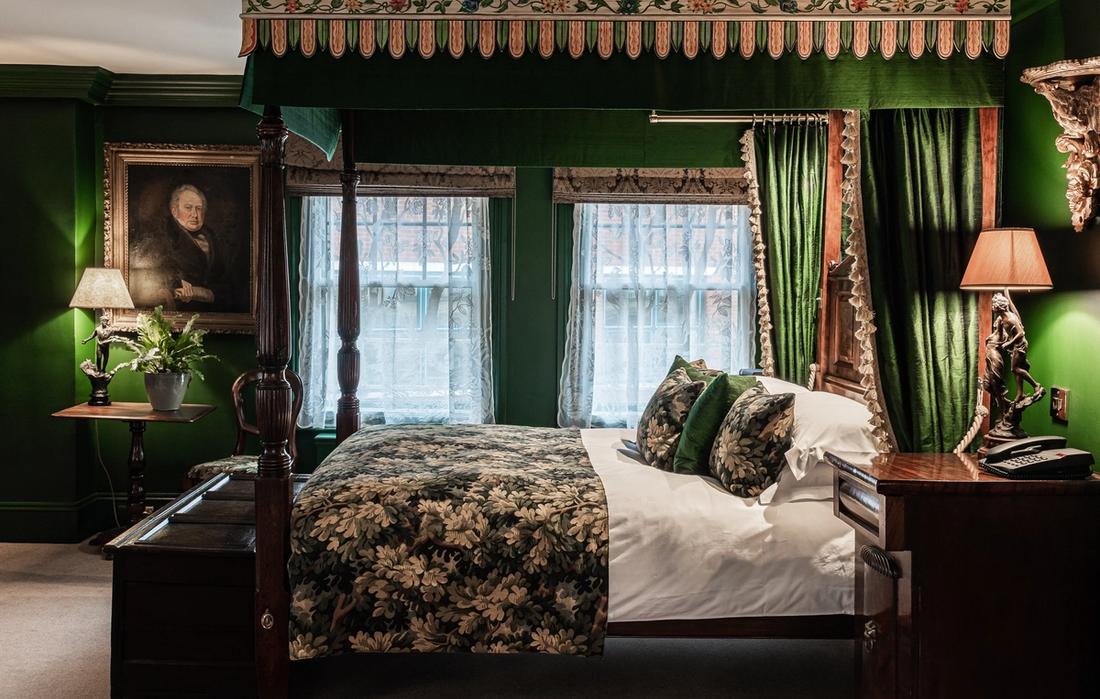The Good Hotel Guide is the leading independent guide to hotels in Great Britain & Ireland, and also covers parts of Continental Europe. The Guide was first published in 1978. It is written for the reader seeking impartial advice on finding a good place to stay. Hotels cannot buy their way into the Guide. The editors and inspectors do not accept free hospitality on their anonymous visits to hotels. All hotels in the Guide receive a free basic listing. A fee is charged for a full web entry.
The Good Hotel Guide
About Us
Independent
Recommended
Trusted
Independent
Recommended
Trusted

Hotels lack clout
All blog posts
4 minutes
13 Dec 2020
Hotels lack clout
All blog posts
4 minutes
13 Dec 2020
By Adam Raphael

Asked in ‘Yes Minister’ why culture media and sport were bundled together, the Prime Minister replied: ‘Because none of them matters’. Fine for satire, but no laughing matter for tourism which is so low on the political totem pole that it does not even feature in the title of its main sponsor, the Department of Culture, Media and Sport. With virus lockdowns threatening to wreck large parts of the hospitality industry, which employs three million people and generates £130 billion annually for the economy, this is not just short sighted but seriously damaging.
To remedy the void, a parliamentary petition calling for a Minister for Hospitality has already drawn more than 100,000 signatures, the threshold at which it must be debated by Parliament. Backed by Robin Hutson, the founder of the Pig Hotels and chefs Tom Kerridge, Rick Stein and Marcus Wareing, the petition’s influence will depend on how much support it gets. If you care about the future of hospitality and the hundreds of thousands of job it provides, not least for young entrants, please add your voice by going to: https://petition.parliament.uk/petitions/552201
The abyss potentially facing many hoteliers, restaurateurs and inn keepers after this terrible year will not be solved just by the appointment of a new minister. But as responsibility for hospitality is currently split in Whitehall between three departments, it would certainly help if its importance was recognised. That should be reflected by a Cabinet-level politician who could argue the industry’s case. Last week I asked the Department of Culture, Media and Sport how many Ministers of Tourism they had had over the past ten years. I didn’t get an answer. When I last counted there had been ten in the past 14 years. The post usually is given to a political lightweight who almost no one has ever heard of and who is going nowhere.
Why has tourism been so shamefully neglected by successive governments? In part it is because it is such a diverse industry. Hotel, pubs, and restaurant groups such as such as Premier Inns, Weatherspoons and Burger King, have little in common with the sort of small, individually owned hotels that are selected by the Guide. Though UKHospitality under its energetic chief executive, Kate Nicholls has done a good job in representing the industry, she has an uphill task. Britain’s share of the world tourism market has declined by nearly half over the past four decades. The World Economic Forum’s index has ranked Britain at nearly the bottom of 140 countries it surveyed. The perception that Britain and its hotels and restaurants are expensive is widespread.
One issue that urgently needs to be tackled is the VAT level for hospitality businesses, recently reduced from 20% to 5% by the government as an emergency measure. This cut needs to be put on a permanent basis. Britain’s tourist trade has for years suffered the second highest VAT rate in Europe, beaten only by Denmark. Other European destinations, including France, Italy, Portugal, Ireland and Germany, levy VAT on tourism at a third to a half of the UK’s rate. ‘If we are going to do battle in Brexit land, we have got to be competitive with hotels in Europe’, notes John Cushing the owner of Goldstone Hall. Market Drayton, Shropshire.
The argument for a permanent VAT reduction is backed by several economic studies. One such study carried out by a Treasury adviser using the Government’s own economic model has concluded that lowering the rate of tourism VAT to 5% is ‘one of the most efficient, if not the most efficient, means of generating GDP gains at low cost to the Exchequer that we have seen’. Further research by Deloitte/Tourism Respect found that such a reduction would contribute an extra £4.6 billion to HM Treasury over ten years and create 121,000 jobs. The experience of Germany and Ireland after cutting their VAT rates on tourism suggests that these estimates are not fanciful.
The Treasury has in the past not been convinced by such arguments claiming that a VAT cut would not produce ‘sufficient economic growth to outweigh the revenue shortfall.’ But it is surely time in the light of the havoc caused by the virus to reassess the case. No sane government would seek to handicap one of its major export earners by lumbering it with an uncompetitive tax burden.
If you have got this far, you may well ask: what can readers do to help the Guide’s selected hotels at such a critical time? How about giving a hotel gift voucher, which range from £100 to £1,000, as a Christmas present? All the proceeds of the gift voucher from go directly to the hotel chosen by the recipient for their stay. The recipient also receives a free copy of the 2021 Guide. He or she can choose from any of the Guide’s 850 selected hotels and stay at the time of their choosing. For details CLICK HERE.


